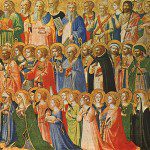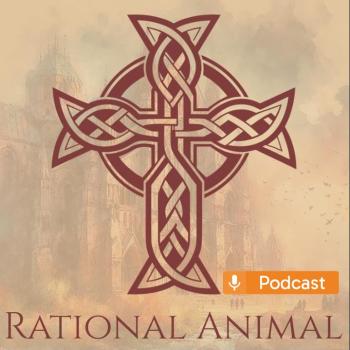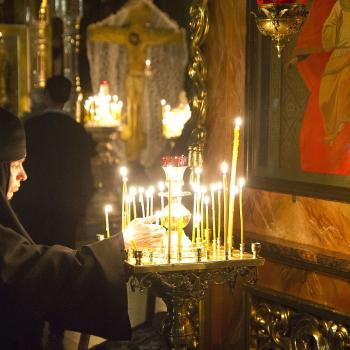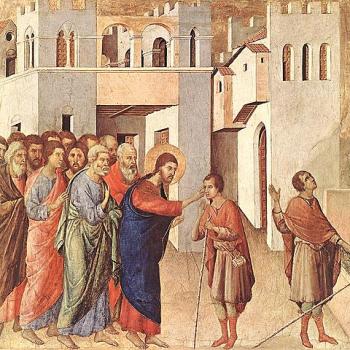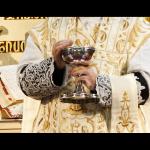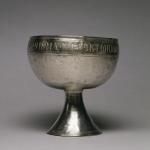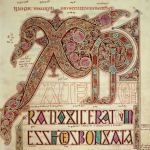In what might be a surprise to a casual reader of the Gospels, Jesus often gave instructions to his core disciples and Apostles in secret, presenting to them insight which the general populace was not yet prepared to hear and accept. Indeed, he often enforced a silence upon his closest friends, telling them they could only speak upon what they have heard and learned after his mission had been accomplished. For this reason he would often journey in secret, because then the general populace would not be able to follow him as he gave special retreats to his close disciples:
They went on from there and passed through Galilee. And he would not have any one know it; for he was teaching his disciples, saying to them, “The Son of man will be delivered into the hands of men, and they will kill him; and when he is killed, after three days he will rise” (Mk. 9:30-31 RSV).
Some people are mere hearers of the Word. Certainly, they love what they are told, but they are not capable of doing much more than follow some of the more basic, rudimentary forms of spiritual advice. Through grace they can be saved, but they will have collected and used lesser forms of spiritual talents, and so will receive and experience a glory which will entirely satisfy them, but will be less than that of those who have acquired greater forms of spiritual talents in their journey with God. Thus, as Jesus suggested in the Parable of the Talents (cf. Mt. 25:14 -30), there will be a diversity of grace given out. The more one uses and multiplies what little they have been given, the more grace Jesus will lend to them in return, so that there will be some with little talent who have done little with what they have been given and will be least in the kingdom of God, but there will be others, those who excel in spiritual glory, noble ones who acquire for themselves all the merits they can find, doing all the little works which they can for the promotion of their own virtue.
Those who take the grace given to them and multiply it greatly by cooperation with its direction in their lives greatly please the Lord. Yet of those, there are two different groupings. There are those who take the grace, apply it for the sake of virtue, but do so with an element of self-promotion and vanity, and so their reward, though great, will include elements of earthly praise, a lesser glory which shall fade away as they leave temporal existence and enter into eternity. Then there are those great men and women of God who have cast aside all sense of glory and honor for themselves, who seek to do good and right not for their own glory and praise, but for the sake of others, who truly imitate Christ in self-giving. Through such humility, these last ones will find themselves to be lifted up by God, to be seen as some of the greatest in the kingdom heaven. To them is given the true secrets, to them are given the spiritual retreats, graces, and insight which they need, not to lift themselves up, but so that they can be effective vessels of God’s grace for others. To this last group are the secrets of the kingdom of God revealed, not so that they hold on to the secrets to themselves as if they are prizes for a select few, but as chosen vessels capable of receiving those secrets because they have emptied themselves from all that would hinder their reception of the graces those seconds bring with them. [1]
It is God, in and through the accomplishment of Jesus, who brings to all, from the ordinary hearers, to the noble ones seeking righteousness, and to the great spirits who live out the great mysteries of God, the multiplication of their graces and the rewards which they are to receive. It is the promise of God, certified by Jesus, which should direct us. Those who follow after God are truly said to be heirs of the promises of Abraham, and will receive the eternal blessing, the glory of the kingdom of God:
For when God made a promise to Abraham, since he had no one greater by whom to swear, he swore by himself, saying, “Surely I will bless you and multiply you.” And thus Abraham, having patiently endured, obtained the promise. Men indeed swear by a greater than themselves, and in all their disputes an oath is final for confirmation. So when God desired to show more convincingly to the heirs of the promise the unchangeable character of his purpose, he interposed with an oath, so that through two unchangeable things, in which it is impossible that God should prove false, we who have fled for refuge might have strong encouragement to seize the hope set before us. We have this as a sure and steadfast anchor of the soul, a hope that enters into the inner shrine behind the curtain, where Jesus has gone as a forerunner on our behalf, having become a high priest for ever after the order of Melchizedek (Heb. 6:13-20 RSV).
![St. John Climacus by By anonimus [Public domain], via Wikimedia Commons](https://wp-media.patheos.com/blogs/sites/637/2017/03/John_Climacus-241x300.jpg)
Like any of Jesus’ great saints, John was silent when necessary, realizing not all would be ready for what he had learned, but he also spoke and revealed what he thought was necessary to help others achieve the graces which he attained, so that he could be a proper guide to any who sought the kingdom of heaven. As the Troparion for the feast reveals, he pursued Christ, following the strict ascetic struggles, so that he could in the end become a vessel of grace for others, healing them through the grace which Christ imparted upon him:
Dweller of the desert and angel in the body, / you were shown to be a wonder-worker, our God-bearing Father John. / You received heavenly gifts through fasting, vigil, and prayer: / healing the sick and the souls of those drawn to you by faith. / Glory to Him who gave you strength! / Glory to Him who granted you a crown! / Glory to Him who through you grants healing to all! (Troparion of Sunday of St. John Climacus).



